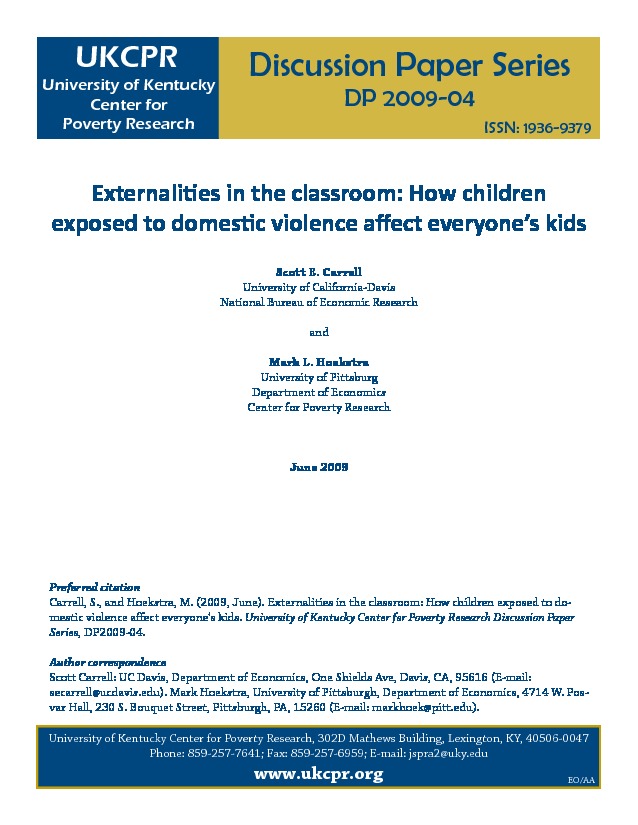There is widespread perception that externalities from troubled children are significant, though measuring them is difficult due to data and methodological limitations. We estimate the negative spillovers caused by children from troubled families by exploiting a unique data set in which children’s school records are matched to domestic violence cases. We find that children from troubled families significantly decrease their peers’ reading and math test scores and increase misbehavior in the classroom. The achievement spillovers are robust to within-family differences and when controlling for school-by-year effects, providing strong evidence that neither selection nor common shocks are driving the results.
Research
InequalityPDF Thumbnail
